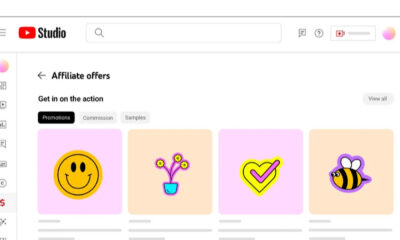SOCIAL
Op-Ed: Major lawsuit for Facebook includes billionaire, cryptocurrency, and money laundering

© AFP
This may well be one of the most interesting lawsuits ever faced by Facebook. Australian billionaire Andrew Forrest has filed a major complaint alleging that Facebook failed to take down his image on multiple advertisements promoting cryptocurrency investments.
This case includes just about everything notoriously affecting Facebook, in so many ways, including criminal allegations against Facebook:
- Unauthorized use of a personal image for promotional purposes.
- Possible breach of money laundering laws in relation to cryptocurrency promotions.
- These promotions are believed to be scams. Forrest claims that Facebook failed to “… prevent its systems to be used to commit crime”.
Forrest describes his action as a “world first” to protect the public from scammers. He’s probably right. This case contains a quite literal wealth of fundamental elements regarding social media advertising and scams.
Cryptocurrency scams aren’t exactly unknown online. The massive hype regarding Bitcoin has done a lot of damage worldwide, particularly to small investors.
Facebook, of course, is a natural venue for scams. Not so long ago Facebook was accused of allowing fake ads in its Marketplace section, yet another folksy unregulated tradition in online advertising.
(This is what happens when people become so infatuated with deregulation. Endless legal grey areas are created for no reason at all. Laws are left well behind legal realities. Add to this the myth that anything online is somehow immune to legal action, which nothing ever has been or will be, and this is the environment you get.)
The risk to the public is undeniable. The risk could be all the more serious in the social media environment, where user information could be accessed.
Forrest also has a very legitimate bone to pick with Facebook regarding the use of his image. He is a very high-profile businessman in Australia with an excellent reputation. In any kind of investment environment, he has major credentials. His obvious anger has plenty of basis in fact.
This use of his image is also a classic major privacy issue for a lot of people. Why is anyone’s image used without permission and payment in any commercial content? Your personal image is not somebody else’s property. Your image could be a personal security risk in some environments like political advertising or in relation to controversial issues.
Facebook, (which now apparently responds to the name Meta), was unable to comment on this lawsuit. The company said it was committed to protecting users and managing such ads, which violate their policies.
A major call for the courts
This court case has global ramifications. All the issues raised by Mr. Forrest are perfectly valid grounds for a lawsuit. They will also have direct applications in any court on Earth regarding a very wide range of illegal practices in online advertising. This case will effectively set a precedent in most English-speaking countries by virtue of their very similar laws.
From Facebook’s perspective, there is an interesting perspective. This court case, if successful, could be a very strong legal basis for Facebook to crack down on this type of advertising.
Frankly, it would probably be better for Facebook to let this case go through and simply not contest it. With an actual finding in place, the legal argument for Facebook in future cases would be irrefutable.
Source link
SOCIAL
Snapchat Explores New Messaging Retention Feature: A Game-Changer or Risky Move?

In a recent announcement, Snapchat revealed a groundbreaking update that challenges its traditional design ethos. The platform is experimenting with an option that allows users to defy the 24-hour auto-delete rule, a feature synonymous with Snapchat’s ephemeral messaging model.
The proposed change aims to introduce a “Never delete” option in messaging retention settings, aligning Snapchat more closely with conventional messaging apps. While this move may blur Snapchat’s distinctive selling point, Snap appears convinced of its necessity.
According to Snap, the decision stems from user feedback and a commitment to innovation based on user needs. The company aims to provide greater flexibility and control over conversations, catering to the preferences of its community.
Currently undergoing trials in select markets, the new feature empowers users to adjust retention settings on a conversation-by-conversation basis. Flexibility remains paramount, with participants able to modify settings within chats and receive in-chat notifications to ensure transparency.
Snapchat underscores that the default auto-delete feature will persist, reinforcing its design philosophy centered on ephemerality. However, with the app gaining traction as a primary messaging platform, the option offers users a means to preserve longer chat histories.
The update marks a pivotal moment for Snapchat, renowned for its disappearing message premise, especially popular among younger demographics. Retaining this focus has been pivotal to Snapchat’s identity, but the shift suggests a broader strategy aimed at diversifying its user base.
This strategy may appeal particularly to older demographics, potentially extending Snapchat’s relevance as users age. By emulating features of conventional messaging platforms, Snapchat seeks to enhance its appeal and broaden its reach.
Yet, the introduction of message retention poses questions about Snapchat’s uniqueness. While addressing user demands, the risk of diluting Snapchat’s distinctiveness looms large.
As Snapchat ventures into uncharted territory, the outcome of this experiment remains uncertain. Will message retention propel Snapchat to new heights, or will it compromise the platform’s uniqueness?
Only time will tell.
SOCIAL
Catering to specific audience boosts your business, says accountant turned coach

While it is tempting to try to appeal to a broad audience, the founder of alcohol-free coaching service Just the Tonic, Sandra Parker, believes the best thing you can do for your business is focus on your niche. Here’s how she did just that.
When running a business, reaching out to as many clients as possible can be tempting. But it also risks making your marketing “too generic,” warns Sandra Parker, the founder of Just The Tonic Coaching.
“From the very start of my business, I knew exactly who I could help and who I couldn’t,” Parker told My Biggest Lessons.
Parker struggled with alcohol dependence as a young professional. Today, her business targets high-achieving individuals who face challenges similar to those she had early in her career.
“I understand their frustrations, I understand their fears, and I understand their coping mechanisms and the stories they’re telling themselves,” Parker said. “Because of that, I’m able to market very effectively, to speak in a language that they understand, and am able to reach them.”Â
“I believe that it’s really important that you know exactly who your customer or your client is, and you target them, and you resist the temptation to make your marketing too generic to try and reach everyone,” she explained.
“If you speak specifically to your target clients, you will reach them, and I believe that’s the way that you’re going to be more successful.
Watch the video for more of Sandra Parker’s biggest lessons.
SOCIAL
Instagram Tests Live-Stream Games to Enhance Engagement

Instagram’s testing out some new options to help spice up your live-streams in the app, with some live broadcasters now able to select a game that they can play with viewers in-stream.
As you can see in these example screens, posted by Ahmed Ghanem, some creators now have the option to play either “This or That”, a question and answer prompt that you can share with your viewers, or “Trivia”, to generate more engagement within your IG live-streams.
That could be a simple way to spark more conversation and interaction, which could then lead into further engagement opportunities from your live audience.
Meta’s been exploring more ways to make live-streaming a bigger consideration for IG creators, with a view to live-streams potentially catching on with more users.
That includes the gradual expansion of its “Stars” live-stream donation program, giving more creators in more regions a means to accept donations from live-stream viewers, while back in December, Instagram also added some new options to make it easier to go live using third-party tools via desktop PCs.
Live streaming has been a major shift in China, where shopping live-streams, in particular, have led to massive opportunities for streaming platforms. They haven’t caught on in the same way in Western regions, but as TikTok and YouTube look to push live-stream adoption, there is still a chance that they will become a much bigger element in future.
Which is why IG is also trying to stay in touch, and add more ways for its creators to engage via streams. Live-stream games is another element within this, which could make this a better community-building, and potentially sales-driving option.
We’ve asked Instagram for more information on this test, and we’ll update this post if/when we hear back.
-

 SEARCHENGINES6 days ago
SEARCHENGINES6 days agoGoogle Core Update Volatility, Helpful Content Update Gone, Dangerous Google Search Results & Google Ads Confusion
-

 SEO6 days ago
SEO6 days ago10 Paid Search & PPC Planning Best Practices
-

 MARKETING7 days ago
MARKETING7 days ago2 Ways to Take Back the Power in Your Business: Part 2
-

 MARKETING5 days ago
MARKETING5 days ago5 Psychological Tactics to Write Better Emails
-

 SEARCHENGINES5 days ago
SEARCHENGINES5 days agoWeekend Google Core Ranking Volatility
-

 MARKETING6 days ago
MARKETING6 days agoThe power of program management in martech
-

 PPC7 days ago
PPC7 days agoCritical Display Error in Brand Safety Metrics On Twitter/X Corrected
-

 SEO5 days ago
SEO5 days agoWordPress Releases A Performance Plugin For “Near-Instant Load Times”












You must be logged in to post a comment Login